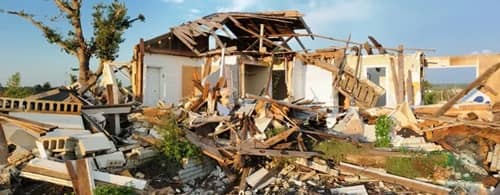Living in a condo is easy and makes you feel like you’re part of a community, but you need to make sure you have the right insurance. Condo insurance, also known as HO 6 insurance, is meant to protect unit owners from threats that the condo association’s main insurance might not cover. To protect your things and property, it’s important to know what your flat insurance covers.
What Is Condominium Insurance?
The HO 6 apartment insurance is for people who own houses. Parts of the unit that aren’t usually covered by the flat association’s main policy are covered by this policy. Most of the time, a master policy includes the building’s common places and any structures that are outside. On the other hand, condo insurance covers your things and the inside of your unit. In the event of a fire, theft, or damage claim caused by an accident in your unit, it covers you.
Types Of Coverage
Dwelling Coverage
You can protect the building and things in your condo with housing coverage in your condo insurance. This insurance generally pays to fix or replace things that get broken by risks that are covered, like theft, fire, or windstorms. This covers changes that were made to the unit, so if it gets stolen, the fixes or upgrades will be paid for. Knowing how much coverage you have for your home is important to make sure your flat is safe.
Personal Property Coverage
The personal property coverage will cover your clothes, tools, furniture, and other personal items in the house. It keeps you from losing money in case of theft, fire, or other risks that your insurance covers. The apartment association’s main insurance may cover common areas, but your own personal property insurance will protect your things if they get lost or stolen.
Liability Coverage
You won’t have to pay for court fees or hospital bills if someone gets hurt in your unit or if you accidentally harm someone else’s property. This is because your apartment insurance covers liability. Up to the maximum of the insurance, it pays for court fees and amounts owed. This safety is very important in places where people live together, and accidents can happen.
It keeps your money safe and gives you peace of mind about possible responsibilities.
Loss Of Use Coverage
What if you lose your condo and have to move for a short time because of a covered loss? Loss of use coverage will help pay for your new living costs. As your unit is being fixed or rebuilt, it pays for things like food, temporary housing, and other costs you need to cover. You can keep up the same level of living while moving with this service, which makes it easy to handle last-minute changes to your plans.
Additional Coverages And Options
Improvements And Betterments
If you make changes or improvements to your unit that make it better than it was before, this security will protect those changes or improvements. It covers these changes in case they get broken or lost and pays you back for the additional value your condo unit has gained because of the changes.
That way, you can get a good idea of how much coverage you need with this insurance option. Remember to keep track of costs and changes.
Additional Living Expenses
You won’t have to worry about your costs if you have to stay somewhere else for a short time because of a protected loss. It pays for things like food, housing, and transportation that you wouldn’t normally spend money on. You must have this coverage if you want to keep up your current level of living when you have to move quickly. It will help you cover temporary housing and other things you need.
Flood And Earthquake Insurance

It’s a good idea to get flood and earthquake insurance to protect yourself from natural disasters that your normal condo insurance might not cover. Usually, basic insurance doesn’t cover these risks, but you can protect your flat against disasters that only happen in your area by getting extra earthquake and flood insurance. To figure out if you need more security options, you need to think about the risks and the worst things that could happen.
Factors To Consider When Choosing Condominium Insurance
- Coverage Limits: Figure out how much your things are worth and how much it will cost to fix or rebuild your unit. Make sure that the amount of coverage you have is enough to keep you from losing money.
- Deductibles: Know how much you have to pay out of pocket before your insurance reimburses you. Your rates will go down if you have a higher deductible, but you should also be able to pay the cost if you need to make a claim.
- Policy Exclusions: Find out what risks or events the insurance doesn’t cover by reading the limits. You can add more suggestions or different insurance for risks like floods and storms if you need to.
- Liability Coverage: Verify the limits of your liability coverage to keep yourself from having to pay court fees and claims for injuries or property that hurt you or your family members in the condo.
- Extra Costs of Living: Find out how much your coverage covers for short-term living costs if an accepted loss makes your flat unlivable. Make sure it covers fair housing and any moving-related costs that come up.
- Changes and improvements: If you’ve made modifications or enhancements to your unit, make sure that your insurance covers them properly. To back up claims, keep track of how much buildings cost and what changes were made to them.
- Case Process and Customer Service: Find out how well-known it is that the insurance business handles cases quickly and has great customer service. Check out reviews and think about what other condo owners have to say.
- Costs and rates: Look at what different companies offer and compare the costs and perks. If you have a safety system, more than one insurance, or a part of not making any claims, you might be able to get lower rates.
- Financial Stability of Insurer: You should find out if the insurance company is financially sound and has a good reputation. Get its scores from outside sources to be sure it can pay the bills if a lot of people file claims.
- Association Requirements: Find out what insurance rules the condo group has set up. Make sure that your policy and the group master policy work together so that coverage doesn’t get lost or clash.

